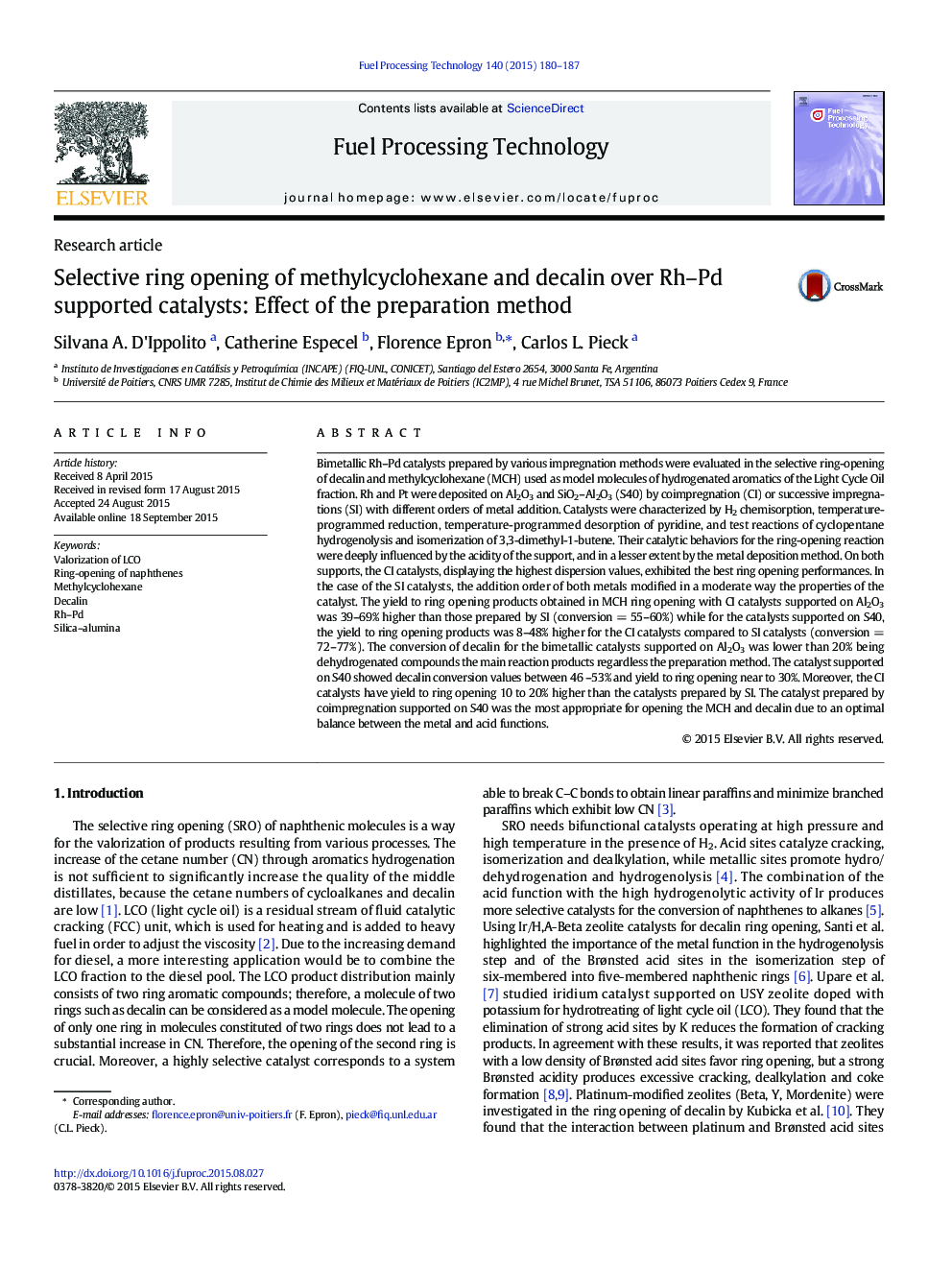| کد مقاله | کد نشریه | سال انتشار | مقاله انگلیسی | نسخه تمام متن |
|---|---|---|---|---|
| 209314 | 461665 | 2015 | 8 صفحه PDF | دانلود رایگان |

• Decalin and MCH ring openings were studied using Rh–Pd supported on Al2O3 and SiO2–Al2O3.
• The catalytic behaviors were deeply influenced by the acidity of the support.
• Coimpregnation catalysts showed the best ring opening performances.
• The metal addition order modified in a moderate way the properties of the catalyst.
• Coimpregnation was the most appropriate for preparing the catalyst for MCH and decalin opening.
Bimetallic Rh–Pd catalysts prepared by various impregnation methods were evaluated in the selective ring-opening of decalin and methylcyclohexane (MCH) used as model molecules of hydrogenated aromatics of the Light Cycle Oil fraction. Rh and Pt were deposited on Al2O3 and SiO2–Al2O3 (S40) by coimpregnation (CI) or successive impregnations (SI) with different orders of metal addition. Catalysts were characterized by H2 chemisorption, temperature-programmed reduction, temperature-programmed desorption of pyridine, and test reactions of cyclopentane hydrogenolysis and isomerization of 3,3-dimethyl-1-butene. Their catalytic behaviors for the ring-opening reaction were deeply influenced by the acidity of the support, and in a lesser extent by the metal deposition method. On both supports, the CI catalysts, displaying the highest dispersion values, exhibited the best ring opening performances. In the case of the SI catalysts, the addition order of both metals modified in a moderate way the properties of the catalyst. The yield to ring opening products obtained in MCH ring opening with CI catalysts supported on Al2O3 was 39–69% higher than those prepared by SI (conversion = 55–60%) while for the catalysts supported on S40, the yield to ring opening products was 8–48% higher for the CI catalysts compared to SI catalysts (conversion = 72–77%). The conversion of decalin for the bimetallic catalysts supported on Al2O3 was lower than 20% being dehydrogenated compounds the main reaction products regardless the preparation method. The catalyst supported on S40 showed decalin conversion values between 46 –53% and yield to ring opening near to 30%. Moreover, the CI catalysts have yield to ring opening 10 to 20% higher than the catalysts prepared by SI. The catalyst prepared by coimpregnation supported on S40 was the most appropriate for opening the MCH and decalin due to an optimal balance between the metal and acid functions.
Figure optionsDownload as PowerPoint slide
Journal: Fuel Processing Technology - Volume 140, December 2015, Pages 180–187